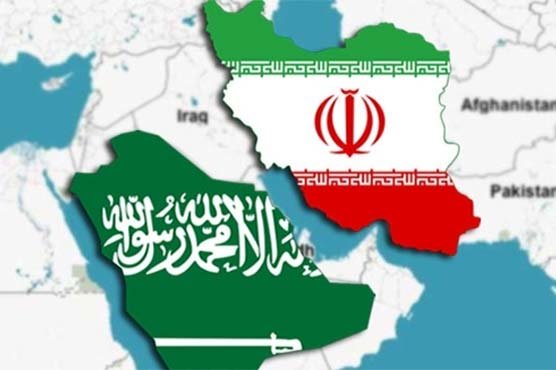What makes Iran stronger than Saudi Arabia?

TEHRAN - After the return of economic prosperity in Lebanon, Saad Hariri declared his resignation in Saudi Arabia, citing Iranian influence across the region and claiming he feared the same fate as his assassinated father if he remained leader. That was the spark that ignited the fire of war against Iran and served to remind the Lebanese of their civil war in which many lives were lost. Subsequently Hariri suspended his resignation after two weeks which prompted many questions and suspicion.
It seems that Iran's growing influence in Arab countries is no longer tolerable by the Saudis; Iran’s presence in the mid-east has increased in recent years particularly after the fall of Saddam Hussain.
While the Persian horse has overtaken the Arab camels in the region as well as rivaling the American eagle in the Middle East, the Persian Gulf’s neighbors have lost their former unity: Qatar has decided to pursue an Independent Foreign Policy which led to a crisis that has blown up the Gulf. Saudi Arabia feels that it has been defeated in several areas as its projects in Iraq, Syria and Lebanon have failed.
This country is also the biggest trading partner of the U.S. arms market, and buys more American weapons than it does British, as it possesses more than 200 F-15 fighter planes—including the 2010 U.S. sale to Riyadh consisting of 84 F-15SA. However, it was unable to reduce Iran's leverage in the mid-east which compels us to study the alliances of these two countries so that we may understand Iran's influence in the Arab world from Iraq to Palestine.
Nobody doubts that Iran had a key role in founding Hezbollah and today supports Palestinian resistant groups politically and militarily, while Saudi Arabia is the top sponsor of Wahhabi schools in Pakistan and Afghanistan. But what distinguishes Iran's ties with Islamic resistant groups is that Iran's support - unlike the Saudi's - is not limited to financial or military dimensions. Tehran pursues a long-term project to develop its cultural influence by exporting its ideology and focusing on resistance against Israel, which has been embraced by Arab nations despite its governments’ standpoint.
While Arab States are moving toward normalization with Israel, Iran betted on challenging U.S. hegemony and confronting Israel through extending its cultural-ideological notions between Islamic groups. It has been successful in Lebanon, Syria to large extent as well as Palestine.
Although the Saudis have tried to develop their Wahhabi schools in recent decades, it wouldn't have developed into an attractive discourse unless it was financed by Saudi petro dollars. Yet it doesn't possess adequate potentials to be dominant discourse for Muslim nations as it is considered as a backward attitude which wants to revive caliphate and restore the past periods of Islam. The Saudi regime has no comprehension that money cannot replace ideological values. There are common ties between Iran and Hezbollah, however the crux of those ties is not monetary. What drives Iran is not a superficial goal, it is working hard to restore the empire, but this time culturally, while Saudi Arabia and its alliances have no clear vision nor project in the Middle East save for keeping their thrones.
The other factor which makes Iran stronger than Saudis or any Arab rivals is its attitudes towards the alliances. Since the Safavie Empire, Iran’s official religion is Shia Islam who are minority Muslims as most Arabs are Sunnis. From this position Tehran has no way to form a coalition or to cooperate with Islamic groups unless it enters into equal relations with them without any subordination whereas the Saudi authorities consider themselves as the superior leaders of Muslims. They believe that all Muslims must obey them because of the fact that Islam originated around 600 AD in their current territory and they are now one of the richest countries in the world.
Unlike commonly held belief, Iran does not dominate its relations with its allies such as Hezbollah in Lebanon, Hashd al-Shaabi in Iraq and the Houthis in Yemen, where some of its important policies are affected by their decisions. For example in Syria; it is Hezbollah that mostly leads the operations against ISIL and other armed rebel groups, while in Yemen it is the Houthis who make the decision whether to advance further or to enter into negotiations, while Tehran just endorses their right for self-defense.
Today Hezbollah, through its alliance with Iran, has become an autonomous organization; able to make policy, run military operations and be a model for other Islamic groups in the Middle East. In much the same way that the Houthis in Yemen have changed the equation without direct coordination with Iran.
This is while Saudi Arabia cannot tolerate criticism, dissent or disobedience as it helped to overthrow Muslim Brotherhood in Egypt instead of building a Sunni coalition with it to encircle Iran. Indeed the Saudi Monarchy not only suppresses any civil and political rights movement inside, but also tries to pull the rug out from under the feet of any autonomous group or organization in the region.
Leave a Comment